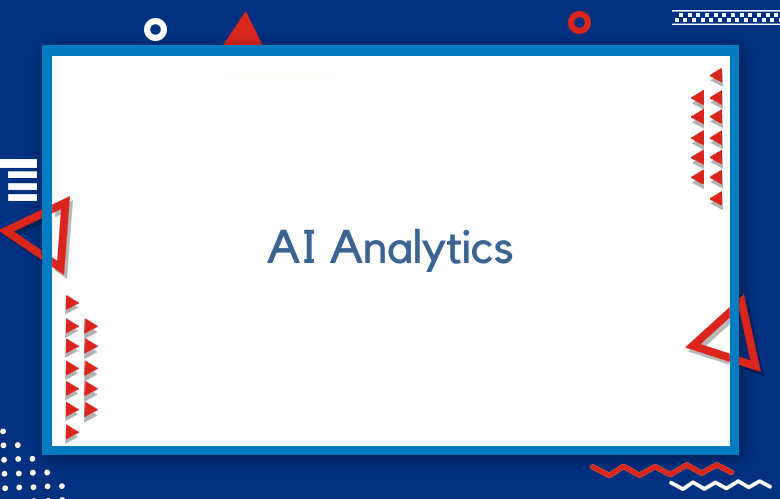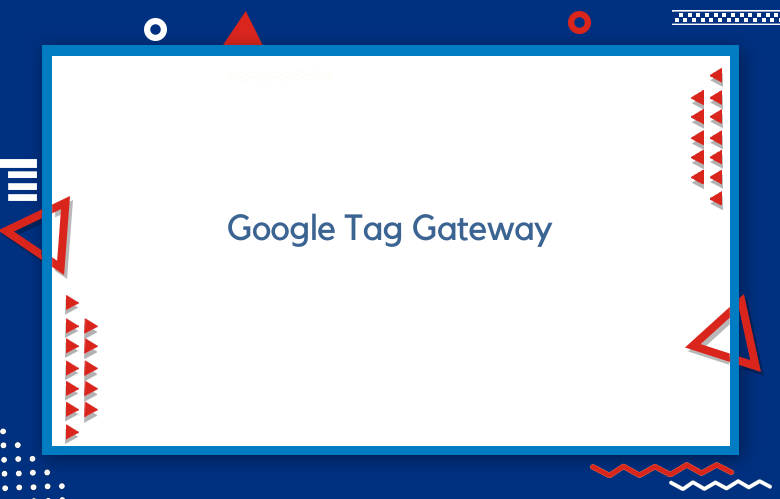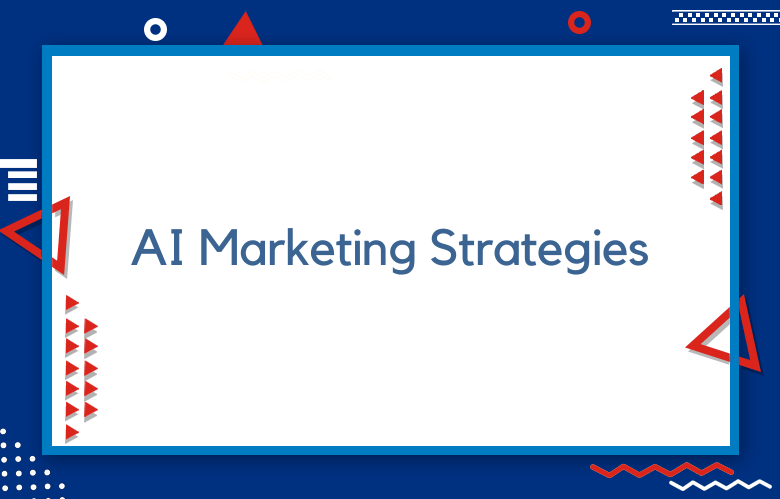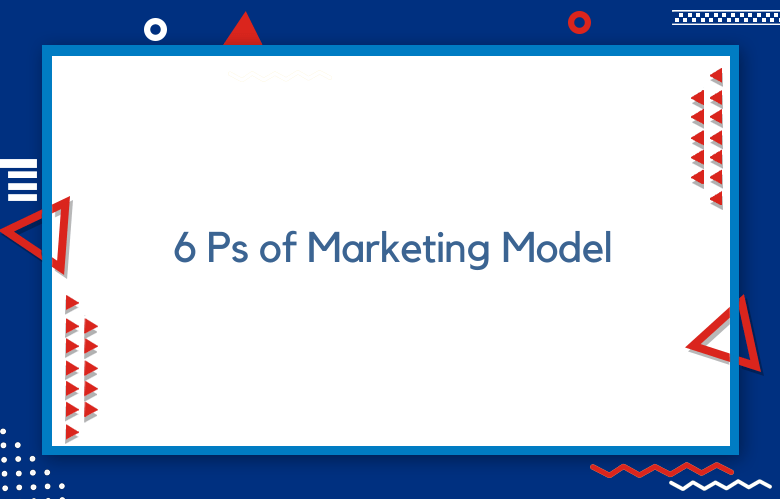Enhancing Marketing Performance with AI Analytics

In marketing, delivering campaigns with maximum impact and conversion rates is paramount. Contacting the right audience with the right message at the right time is more critical than ever. Artificial Intelligence (AI) analytics can help marketers enhance their performance capability, offer better-personalized experiences, and achieve higher engagement and conversion rates. We will explore how AI analytics can help marketers in their day-to-day process, as well as the benefits and some prominent use cases.
Marketing is a crucial aspect of any business, and digital marketing has gained significant attention in recent years. With technological advancements, companies use artificial intelligence (AI) to enhance their marketing performance.
AI analytics allows businesses to gain insights into customer behavior, preferences, and patterns, which can inform marketing strategies. This Will explore how AI analytics can enhance marketing performance.
The Power of AI in Marketing Analytics
The power of AI in marketing analytics cannot be overstated. With the proliferation of data in today’s digital age, marketers have become increasingly busy keeping up with the nuances of consumer behavior across multiple channels and touchpoints.
AI-powered marketing analytics tools are changing the game, making it possible for businesses to gain insights into their customers that were previously impossible.
One of the critical advantages of AI in marketing analytics is the ability to process vast amounts of data quickly and accurately. Machines can identify patterns and trends that would take humans hours or even days to uncover. With this data, businesses can optimize their marketing campaigns to target their ideal customers better and improve their ROI.
Leveraging AI for Effective Marketing Analysis
In the digital age, where data is king, businesses constantly seek ways to gain competitive advantages. Companies can earn a competitive edge by leveraging Artificial Intelligence (AI) for practical marketing analysis.
AI can provide businesses with invaluable insights into customer behavior and preferences, enabling companies to improve their marketing strategies and ultimately increase sales.
The use of AI in marketing analysis has gained popularity in recent years due to its ability to sift through large volumes of data quickly and accurately. AI algorithms can analyze customer data from various sources, such as social media, search engines, and e-commerce sites, to identify patterns and trends that can be used to improve marketing strategies.
Businesses can better understand customer needs and preferences by analyzing customer data. This information can then be used to develop highly targeted marketing campaigns that are more likely to resonate with customers.
Enhancing Marketing Effectiveness with Artificial Intelligence
In today’s rapidly evolving world, businesses constantly look for new ways to boost their sales and enhance their marketing effectiveness. One innovative solution generating immense interest across industries is integrating artificial intelligence (AI) into marketing plans.
AI is transforming the way organizations interact with customers, offering them unprecedented opportunities to deliver personalized experiences that can drive revenue growth.
One significant benefit of using AI in marketing is the ability to collect and analyze vast amounts of customer data. AI-powered tools can scan through customer data in real time to detect patterns and generate insights that can be used to anticipate customer needs, preferences, and behavior. These insights can then be used to develop more targeted, effective marketing campaigns.
Exploring the Benefits of AI in Marketing Analytics
Automation
Artificial Intelligence (AI) has revolutionized the marketing analytics industry, automating mundane tasks and freeing up time for marketers to focus on more creative endeavors. AI can automate customer segmentation, data collection, and campaign optimization processes.
This allows marketers to quickly analyze large amounts of data and make informed decisions about their campaigns. Furthermore, AI-powered algorithms can identify patterns in customer behavior that traditional methods may have overlooked.
Predictive Analytics
Another benefit of using AI in marketing analytics is predictive analytics. Predictive analytics uses historical data to make predictions about future outcomes. For example, an AI-powered system could analyze a customer’s past purchases and predict what products they will likely buy. This allows marketers to target customers with personalized offers based on their preferences.
Improved Targeting
AI can also improve targeting strategies by analyzing customer behavior and identifying potential segments or audiences interested in a product or service. By leveraging AI-driven insights, marketers can create highly targeted campaigns that are tailored to specific audiences and maximize the chances of success.
Personalization
Personalization is another key benefit of using AI in marketing analytics, as it allows marketers to provide customers with personalized experiences tailored to their needs and preferences.
AI-powered systems can analyze customer data such as past purchases, browsing history, location information, demographic details, etc., and use this data to create customized experiences for each user based on their interests and habits. This helps build stronger relationships with customers by providing them with content that is relevant to them personally.
Automated Optimization
AI can also automate optimization processes such as A/B testing and multivariate testing so that marketers no longer need to manually test different versions of ads or webpages to determine which one performs best for a particular audience or market segment.
By leveraging automated optimization techniques powered by AI, marketers can quickly identify the most effective strategies for reaching their desired goals without spending hours manually testing different versions of ads or web pages.
Improved Campaign Performance Measurement
AI also enables improved campaign performance measurement by providing detailed insights into how campaigns are performing across multiple channels at once so that marketers can quickly identify areas where they need improvement or where they should focus their efforts in the future to maximize ROI from their campaigns over time.
With advanced AI-powered insights, marketers can track metrics such as click-through rate, cost per acquisition, conversion rate, etc., all from within one platform.
Enhanced Customer Insights
AI-driven marketing analytics tools also provide enhanced customer insights by collecting vast amounts of data from multiple sources, such as social media platforms, search engines, email campaigns, etc., and then analyzing it all together to understand better who customers are and what drives them.
With this information, businesses can tailor their marketing efforts more effectively to reach their target audience more accurately.
Increased Efficiency
Using AI in marketing analytics increases efficiency by eliminating manual tasks associated with traditional methods such as manual segmentation, analysis, optimization, etc., freeing up time for other activities while still delivering accurate results at scale.
Furthermore, AI-powered systems require less human intervention than traditional methods, which helps reduce costs while still driving successful outcomes from campaigns.
The Role of AI in Transforming Marketing Analytics
Marketing analytics is an essential part of businesses today, as it provides the insights and metrics required to make data-driven decisions that can help grow an organization.
In recent years, however, the role of Artificial Intelligence (AI) in transforming marketing analytics has gained significant attention due to the exponential growth in data volumes and the increasing need for more in-depth analyses.
AI has revolutionized data analysis, helping businesses gain deeper insights into customer behavior and preferences. With advanced algorithms and machine learning capabilities, AI can quickly process vast amounts of data and identify trends and patterns that would have gone unnoticed through traditional analytical techniques.
AI can anticipate future events through predictive analytics and make recommendations based on historical data and real-time information.
How AI Technology Improves Marketing Efficiency
Artificial Intelligence (AI) technology revolutionizes marketers’ understanding and communication with their target audiences. Through predictive modeling, sentiment analysis, machine learning, and other advanced analytical tools, marketers can now better understand consumer behavior and preferences.
As a result, AI is becoming an essential technology for businesses looking to improve their marketing efficiency and overall return on investment.
One of the most significant advantages of AI in marketing is its ability to analyze massive amounts of data in real-time.
By automating the data collection and analysis, AI enables marketers to quickly identify patterns and trends that would be virtually impossible to detect using traditional methods. This data can then be used to personalize marketing messages and offers, making them more appealing to individual consumers.
The Impact of AI on Consumer Profiling in Marketing Analysis
Artificial intelligence (AI) advancements have brought about a significant shift in marketing analysis. One of the foremost implications of AI has been its impact on consumer profiling.
Today, AI-powered machines can analyze vast data stores that would take humans much too long to comb through and distill the insights that marketing teams need to understand consumer behavior.
One of the most significant advantages of using AI in consumer profiling is consolidating data from diverse sources. For instance, by utilizing data from social media platforms, website visits, loyalty programs, and transaction history, AI can build a more comprehensive understanding of the consumer than ever before.
Popular AI Tools for Marketing Analytics and Their Applications
Google Analytics
Google Analytics is one of the most popular AI tools for marketing analytics. It provides detailed insights into website performance, including user behavior, page views, and conversions.
It also allows marketers to track the effectiveness of their campaigns in real time and make data-driven decisions to maximize ROI.Google Analytics can identify critical trends and patterns in customer behavior that can be used to improve marketing strategies.
Adobe Analytics
Adobe Analytics is a powerful AI tool for marketing analytics that provides comprehensive insights into customer behavior across multiple channels. It offers features such as audience segmentation, predictive modeling, and automated campaign optimization that help marketers make better decisions about targeting their audiences.
Adobe Analytics integrates with other Adobe products, such as Adobe Experience Cloud and Adobe Creative Cloud, to provide a unified view of customer data across all platforms.
Mixpanel
Mixpanel is an AI tool for marketing analytics that helps marketers understand user behavior on websites and mobile apps. It provides detailed reports on user engagement, retention, conversion rates, and more that can be used to optimize campaigns and maximize ROI.
Mixpanel offers features such as A/B testing and cohort analysis, allowing marketers to identify campaign improvement areas quickly.
IBM Watson
IBM Watson is an AI tool for marketing analytics that uses natural language processing (NLP) technology to analyze customer data from multiple sources, such as social media posts, emails, web searches, etc., to gain insights into customer preferences and behaviors.
It can create personalized customer experiences by providing tailored content based on their interests or needs. IBM Watson can be used to automate processes such as lead scoring or segmentation, which saves time and resources for marketers.
Salesforce Einstein
Salesforce Einstein is an AI tool for marketing analytics powered by machine learning algorithms. It helps marketers gain deeper insights into customer data from disparate sources, such as CRM systems or email campaigns, to make more informed decisions about how best to reach their target audiences.
Salesforce Einstein can be used to automate tasks such as lead scoring or segmentation, saving marketers time and resources while ensuring the accuracy of results through its advanced artificial intelligence capabilities.
Hootsuite Insights
Hootsuite Insights is an AI tool for marketing analytics explicitly designed for social media management teams who need real-time insights from multiple platforms to make informed decisions about their campaigns quickly and accurately.
It provides detailed reports on engagement levels across various social networks and recommendations on optimizing content based on audience sentiment analysis or current trends-related topics to maximize ROI from each post or campaign launched by the team.
Tableau Software
Tableau Software is a powerful AI tool for marketing analytics that helps teams visualize large amounts of data quickly to gain deep insights into customer behavior across multiple channels without having any prior knowledge of coding or programming languages.
Its drag-and-drop interface makes it easy, even for non-technical users, to create stunning visualizations from raw datasets within minutes, while its advanced features, like trendlines, forecasting, clustering, etc., enable teams to uncover hidden patterns within the data quickly.
Best Practices for Implementing AI in Marketing Analytics
Define Your Goals
Defining your goals is the first step to successfully implementing AI in marketing analytics. This will help you determine the best way to use AI for your needs. It’s essential to clearly understand what you want to achieve and how AI can help you. Once you have defined your goals, you can move on to the next step.
Identify Data Sources
Once you have determined your goals, it’s essential to identify the data sources that will be used for analysis. This includes internal and external data sources such as customer databases, social media platforms, websites, etc. It is essential to understand the types of data available and how they can be used for insights into customer behavior and preferences.
Develop an AI Model
The next step is to develop an AI model that can be used for marketing analytics. This involves selecting suitable algorithms and tools based on your specific needs, creating a training dataset, and testing the model before deploying it in production.
It’s also important to consider scalability when developing an AI model, as this will ensure that it can handle large amounts of data in the future if needed.
Monitor Performance
Once an AI model has been deployed, monitoring its performance over time is crucial to ensure that it provides accurate insights into customer behavior and preferences. This can be done by tracking key metrics such as accuracy, precision, recall, and others, which will help identify any potential issues with the model or data sources that need addressing.
Automate Processes
AI can also be used to automate specific processes, such as segmentation and personalization, which can save time and resources while improving the overall efficiency of marketing analytics operations.
Automating these processes allows marketers to focus on higher-value tasks, such as creating campaigns or optimizing strategies, rather than manually analyzing data sets or running reports daily.
Integrate With Other Systems
Integrating your AI system with other systems, such as CRM tools or content management systems, will enable marketers to gain deeper insights into customer behavior across different channels while streamlining operations across teams within an organization.
This integration will allow marketers to access real-time data from multiple sources, which can be used for more informed decisions about marketing strategies or campaigns moving forward.
Utilize Visualizations
Using visualizations such as charts or graphs when presenting results from marketing analytics powered by AI will make them more accessible for stakeholders or customers to understand quickly without needing detailed explanations about how the models work or what each metric means specifically.
Visualizations are also helpful when communicating complex results concisely, making them ideal for presentations or reports where time is limited but accuracy is still paramount.
Leverage Predictive Analytics
Predictive analytics is another powerful tool enabled by AI that marketers should leverage when implementing artificial intelligence in their analytics operations.
Predictive analytics allow marketers to analyze past customer behaviors and anticipate future behaviors to plan their strategies better. By leveraging predictive analytics, marketers can stay ahead of trends while making more informed decisions about their campaigns moving forward.
Overcoming Challenges of AI in Marketing Analytics
Data Quality
Data quality is one of AI’s most significant challenges in marketing analytics. Data quality can lead to accurate results, which can help decision-making.
To ensure accurate results, it is essential to ensure that all data used for analysis is high quality and collected from reliable sources. It is also necessary to clean and pre-process the data before feeding it into the AI system to remove errors or inconsistencies.
Algorithm Selection
Another challenge when using AI in marketing analytics is selecting the correct algorithm for the job. Different algorithms are suited for various tasks, so choosing an algorithm that best fits the study is essential. Some algorithms may require more resources than others, so it is necessary to consider this when selecting an algorithm.
System Scalability
Scalability is another challenge faced when using AI in marketing analytics. As datasets become larger and more complex, it becomes increasingly more work for traditional systems to process them promptly.
This can be solved by utilizing cloud computing services such as AWS or Google Cloud Platform, providing access to powerful computing resources on demand and enabling systems to scale quickly and efficiently.
Interpretability
Interpretability is another challenge faced when using AI in marketing analytics, as many models produce results that are difficult to interpret or explain due to their complexity.
To address this issue, researchers have developed methods such as feature importance analysis, which allow users to gain insight into how each feature contributes towards model predictions and help them make better decisions based on these insights.
Security & Privacy
Security and privacy are also significant concerns when using AI in marketing analytics due to the large amounts of sensitive customer data the system must collect and process.
To ensure security and privacy, organizations must implement robust security measures such as encryption and access control mechanisms to protect customer data from unauthorized access or manipulation by malicious actors.
Model Validation
Model validation is another challenge faced when using AI in marketing analytics, as models must be tested regularly for accuracy and reliability before being deployed into production environments where they will be used for real-world applications.
This can be done by running tests on sample datasets or by comparing model outputs with known ground truth values from previous experiments or studies conducted on similar datasets to verify accuracy levels achieved by the model under consideration…
Human-in-the-Loop Systems
Human-in-the-loop systems represent a new approach where humans work together with machines during tasks such as decision-making or problem-solving instead of relying solely on automated solutions provided by machine learning models.
This approach allows humans to provide valuable feedback during decision-making processes while leveraging machine learning algorithms for faster processing times and increased accuracy levels compared with traditional methods relying only on human input without machine learning algorithms being involved.
Data Visualization
Data visualization is essential in helping organizations understand complex datasets generated through AI models to make better decisions about their business strategies moving forward.
Data visualizations allow users to quickly identify patterns within large datasets, which would otherwise be difficult or impossible without visual aids, allowing them to gain valuable insights into customer behavior, market trends, etc…
Conclusion
AI analytics has transformed the marketing industry significantly. From intelligent data-driven decision-making to hyper-personalization, chatbots, innovative content, and predictive modeling, AI analytics has become essential to drive higher engagement and conversion rates.
Marketers who use AI analytics can gain a competitive edge, reducing their time to market and achieving better ROI. AI analytics is no longer a “nice to have” but a “must-have” tool. Therefore, marketing teams should integrate AI analytics to obtain insightful data and generate customer value.
AI analytics can give businesses valuable insights into customer behavior and preferences, which can inform and enhance marketing strategies. With AI analytics, companies can personalize marketing campaigns, predict customer needs, segment customers, improve customer experience, and monitor social media.
AI analytics can help businesses optimize their marketing strategies, increase customer satisfaction and loyalty, and drive revenue growth. As such, companies that have not yet adopted AI analytics in their marketing strategies should consider doing so to remain competitive in today’s digital age.
Call: +91 9848321284
Email: [email protected]



